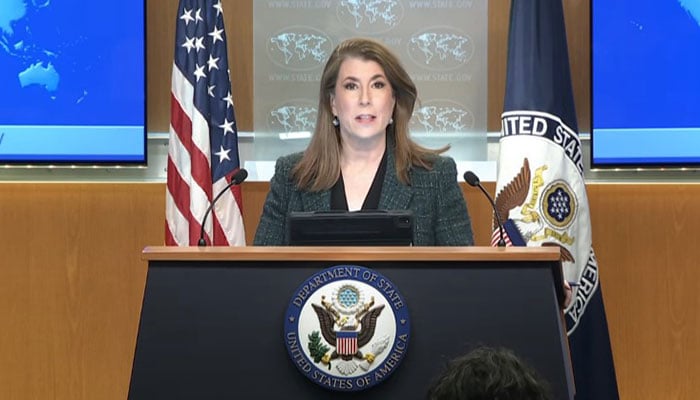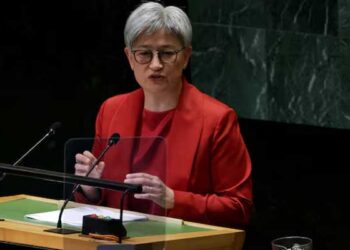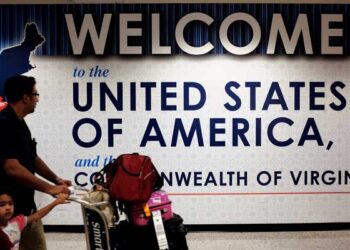Select Language:
- “There is no travel ban list,” stated State Department spokesperson Tammy Bruce.
- She confirmed that the administration aims to ensure the safety of the U.S. when it comes to issuing visas.
- Reports suggest that Washington has drafted a list comprising 41 countries.
WASHINGTON: Amid widespread speculation regarding potential travel restrictions from President Donald Trump’s administration, the U.S. State Department has confirmed that there is no existing travel ban list.
“There is no list. What people have been discussing over the past several days is not something that exists here that we are acting upon,” State Department spokesperson Tammy Bruce stated during a media briefing when asked about Afghanistan’s status on the alleged travel ban list.
This denial follows the emergence of a draft list containing the names of 41 countries, including Pakistan, Afghanistan, Iran, and others, categorized into three groups that would face different levels of travel restrictions.
According to a memo obtained by Reuters, Pakistan was placed in a category that would be considered for a partial suspension of visa issuance if its government fails to “address deficiencies within 60 days.”
The first group consists of 10 countries, including Afghanistan, Iran, Syria, Cuba, and North Korea, which would encounter a full visa suspension.
The second group includes five nations—Eritrea, Haiti, Laos, Myanmar, and South Sudan—that would experience partial visa suspensions affecting tourist and student visas as well as other immigrant visas, though some exceptions would apply.
The third group comprises 26 countries, including Belarus, Pakistan, and Turkmenistan, which could face partial visa suspensions if their governments do not resolve relevant issues in a timely manner.
A U.S. official, speaking on the condition of anonymity, warned that changes to the list might occur and that it had yet to receive approval from the administration, including Secretary of State Marco Rubio.
This proposed policy reflects the travel ban during Trump’s first term, which targeted travelers from seven predominantly Muslim countries. This policy underwent several modifications before being upheld by the Supreme Court in 2018.
On January 20, Trump signed an executive order mandating enhanced security vetting for foreigners seeking entry into the U.S. to identify potential national security threats.
Addressing the reports about the potential travel restrictions, State Department spokesperson Bruce explained that there is an ongoing review under Trump’s executive order aimed at determining what measures could make America safer in terms of visa policies and admissions.
“However, what has been presented as an item by the State Department is simply not accurate,” she further emphasized.







